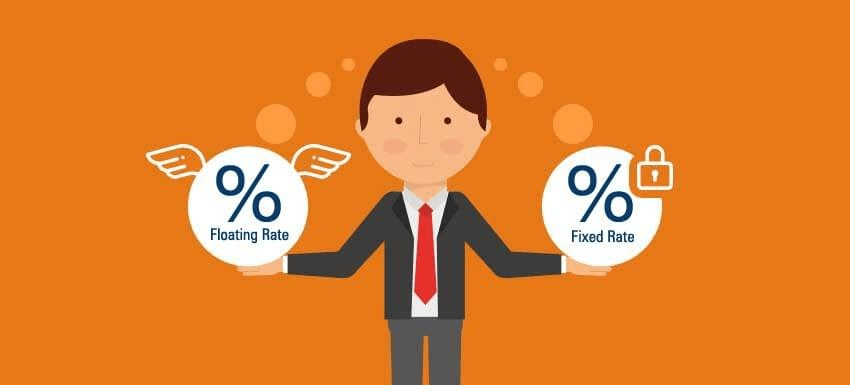Unsecured and secured loans are disbursed by lenders at a certain interest rates to borrowers. The reference rate according to which these financiers decide the applicable interest rates is linked to the benchmark rate set by the RBI. Interest rates are either fixed or floating interest rates.

# Fixed Interest Rate
Fixed interest rates are the same throughout the tenor of a disbursed loan. This interest rate does not change according to market fluctuations once the loan is availed.
# Floating Interest Rate
Floating Interest Rate varies according to base market rates or reference rates set on lenders. Financers apply a certain spread over the reference rates to avail of the profits.
# Fixed vs Floating Interest Rate
- Fixed-rate remains the same during loan tenor and helps the borrower to pay a fixed amount of EMIs monthly and plan their expenses. The floating rate doesn’t remain the same throughout the loan tenor while the borrower will not have any chances to repay the loan in an equal amount.
- Generally, a fixed interest is higher than the floating rate because of advance market risks.
- No-charge prepayment and foreclosure facilities are available on floating interest rates and opting for a fixed interest rate on a short tenor is beneficial for the borrowers.
Both the fixed and floating interest rates are applicable on a loan. Borrowers should consider multiple factors to decide between either interest rate when opting for a loan against property.
Refer to leading lenders when you apply and avail the most beneficial terms. Also, check the charges on a loan against property applicable from the lender to understand deliverables expected from your end to avail of a loan.